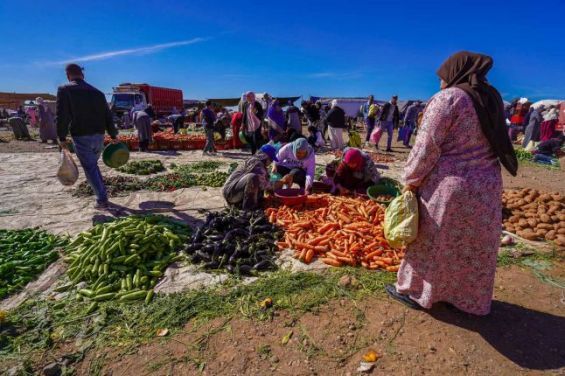24% of Moroccan adults are living with obesity in 2025, according to the Obesity Atlas 2025. The latter is an annual report published by the World Obesity Federation to track obesity prevalence and trends worldwide.
The report also reveals that 50% of adults in Morocco have a high Body Mass Index (BMI) in 2025. BMI is a measure of body fat based on height and weight, and people with a high BMI are considered overweight or obese. This percentage is expected to continue rising by 2030. According to the report, 16.86 million adults in Morocco are projected to have a high BMI by 2030.
The increase in individuals with a high BMI has been a consistent trend in Morocco over the past 15 years. Data from the Atlas shows that in 2010, the number of adult men in Morocco with a high BMI was estimated at 4.19 million. By 2015, this number had risen to 4.89 million, and it is expected to reach 6.91 million by 2030.
Women with high BMI outnumber men
The trend for adult women in Morocco is similar, though their numbers are higher. In 2010, 5.66 million women were living with a high BMI, and this number grew to 6.66 million in 2015, with a projection to rise to 9.94 million by 2030.
Among adult men, the largest group with a high BMI falls into the category of 25-29.9, considered overweight, followed by those with a BMI of 30-34.9, classified as obese, and the smallest group is those with a BMI of 35 and above, categorized as severely obese. In adult women, the proportion of those who are obese or severely obese is larger than that of men.
Obesity is a major driver of non-communicable diseases (NCDs), which include conditions such as heart disease, stroke, type 2 diabetes, chronic respiratory diseases (like asthma), and certain types of cancer. The report also indicates that 16,524 premature NCD-related deaths in Morocco in 2021 were linked to high BMI, and 366,828 adult years of NCD-related ill health were attributed to high BMI that same year.
Although there are no national guidelines in Morocco for managing high BMI, physical inactivity, or NCDs in primary care, surveys on adult overweight and obesity, unhealthy diets, and physical inactivity have been conducted in the last five years, the report notes.
Morocco has also implemented taxes on sugar-sweetened beverages, with an average consumption of 1000-2500ml of these drinks per person per week. Additionally, around 20-30% of adults in Morocco are reported to have insufficient physical activity, indicating that public health policies and interventions have room for improvement.





 chargement...
chargement...













